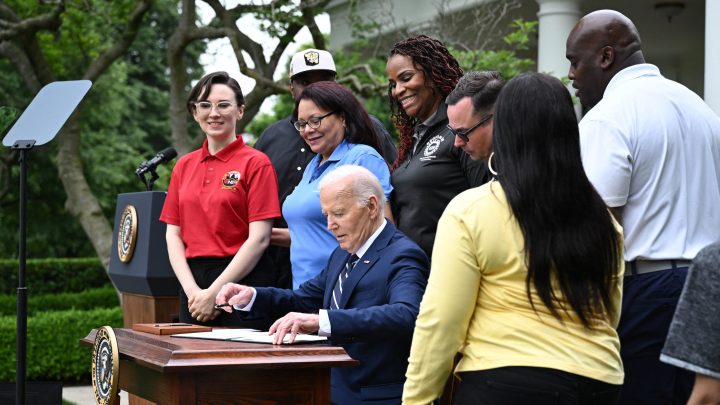
How new China tariffs could affect prices for U.S. business owners, consumers
How new China tariffs could affect prices for U.S. business owners, consumers

Biden announced new tariffs today on Chinese electric vehicles, EV batteries and critical minerals, solar cells, semiconductor chips and more. What does it all mean for consumers?
One of the first things that happens when tariffs increase is that costs go up for business owners.
“They either have to pay the tariff on that input, or they have to source it elsewhere. And it’s going to likely be higher priced elsewhere,” said Erica York, senior economist at the Tax Foundation.
That’s true whether they get it from a manufacturer here in the U.S. or from another country.
“Then what we see happen down the line is that as businesses grapple with those higher costs, a good chunk of it gets passed on to the consumer,” she said.
With these new tariffs, said Adam Hersh, senior economist at the Economic Policy Institute, the impact for consumers is likely to be minor.
“These tariffs that have been announced are only going to cover roughly 4% of imports from China,” he said.
Still, Dana M. Peterson, chief economist at The Conference Board, said these tariffs are affecting products that go into making lots of different things.
“Batteries and computer chips go into just about everything that consumers are purchasing from cars, to cell phones. So you could see some upward pressure on prices in the margin,” she said.
And right now, when the Fed is still trying to bring inflation down, Peterson said tenths of a percentage point matter.
“So it’s just another thing that’s going to put upward pressure on inflation,” she said.
In addition to that, a 100% tariff on Chinese-made electric cars could effectively keep them out of the U.S. market.
And while that won’t necessarily raise prices, Urban-Brookings Tax Policy Center senior fellow Howard Gleckman said it will prevent competition that might have brought EV prices down.
“If you want to get consumers to buy electric vehicles, which the President clearly wants to do, one way to do it is to keep the price low,” he said.
China makes cheap EVs, but Gleckman said the administration’s concern is that allowing them in would hurt U.S. manufacturers, even if it might help U.S. consumers.
“The President has these dual goals: One goal is to fight climate change. And the other is to encourage American manufacturing,” he said.
And he said, to some degree, those things are in conflict.
There’s a lot happening in the world. Through it all, Marketplace is here for you.
You rely on Marketplace to break down the world’s events and tell you how it affects you in a fact-based, approachable way. We rely on your financial support to keep making that possible.
Your donation today powers the independent journalism that you rely on. For just $5/month, you can help sustain Marketplace so we can keep reporting on the things that matter to you.











